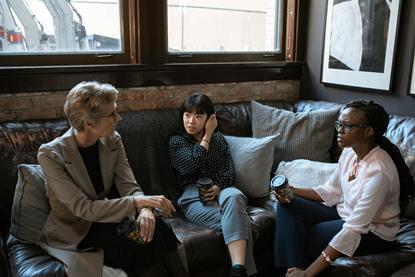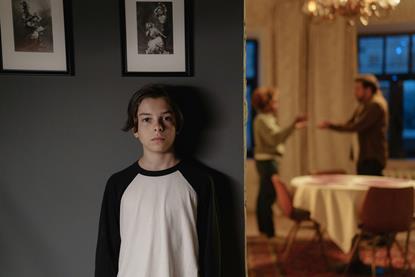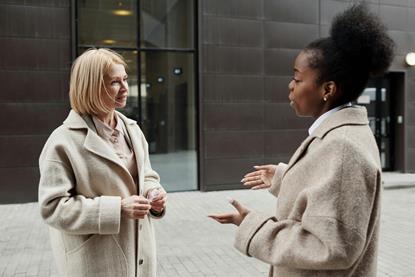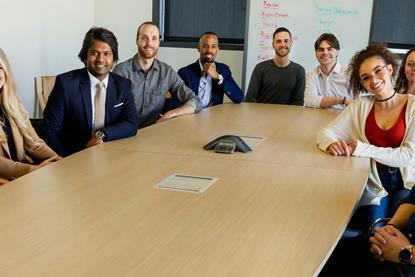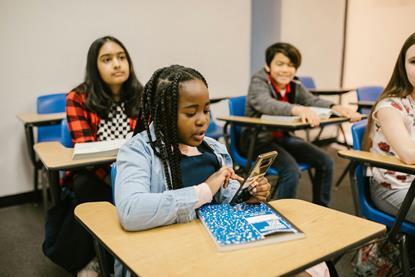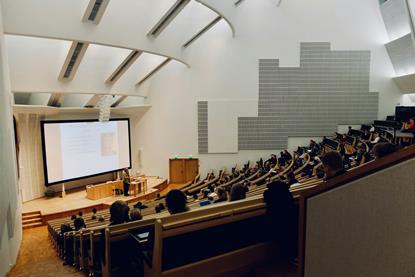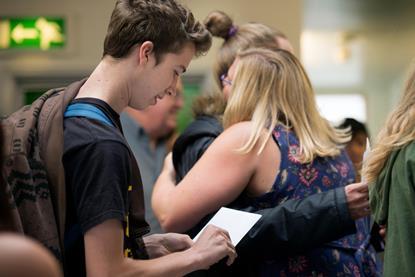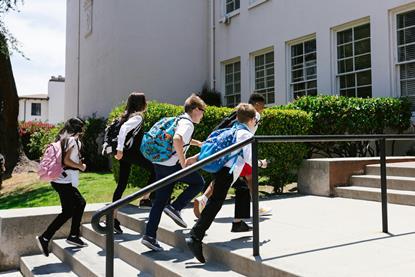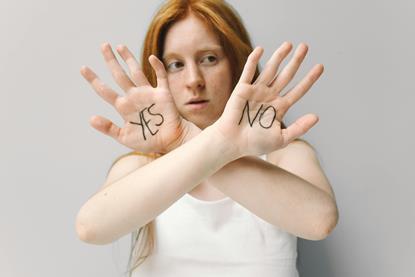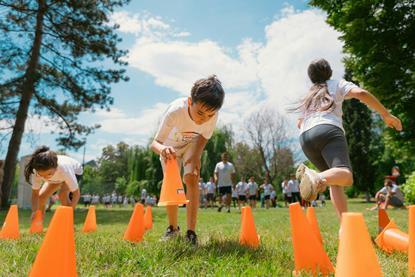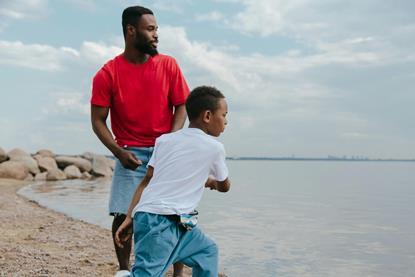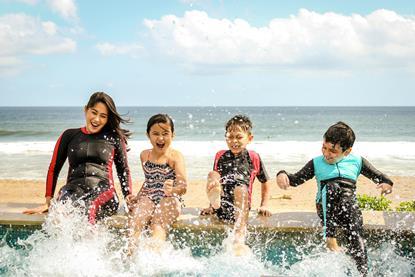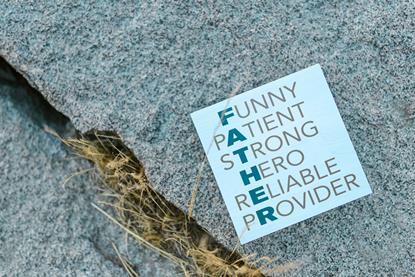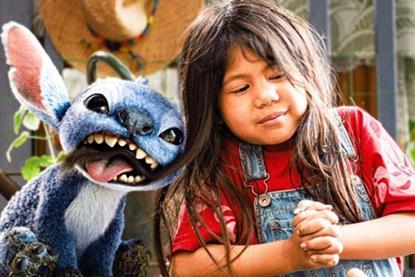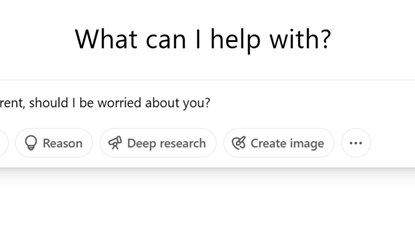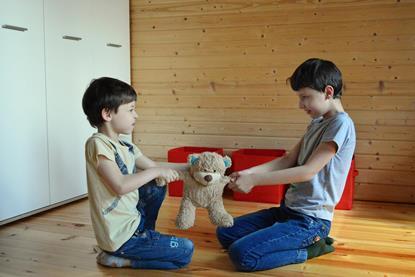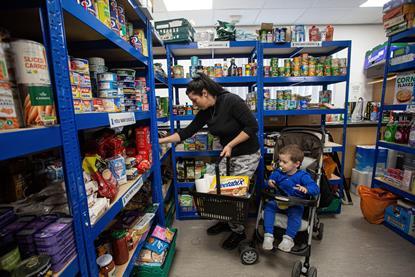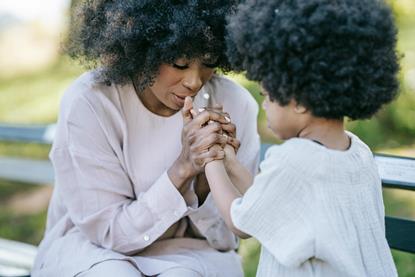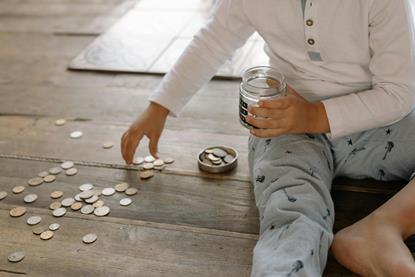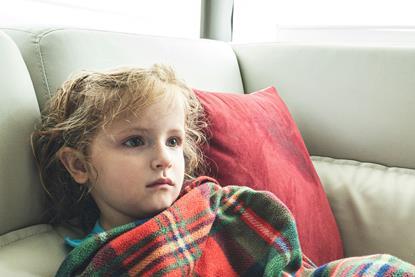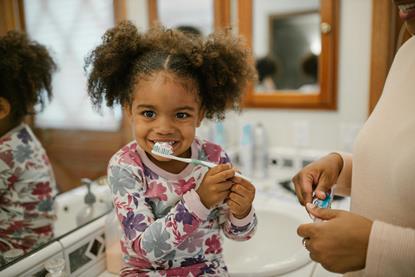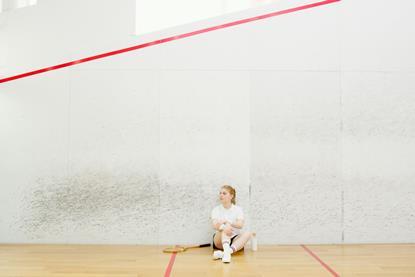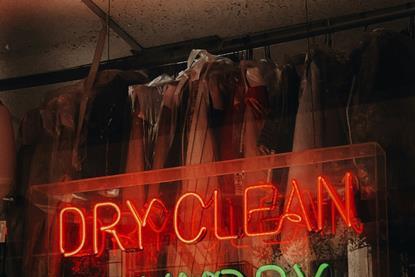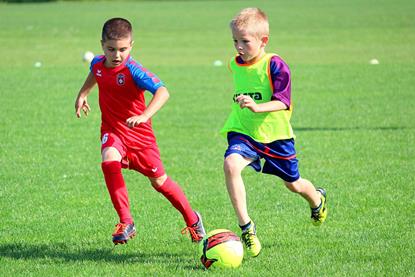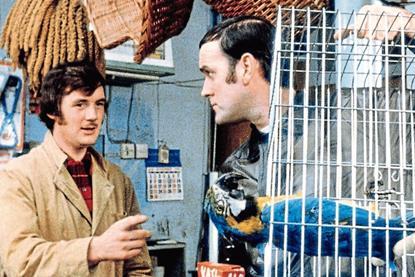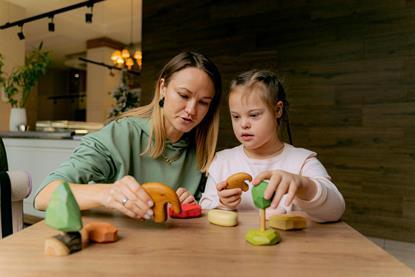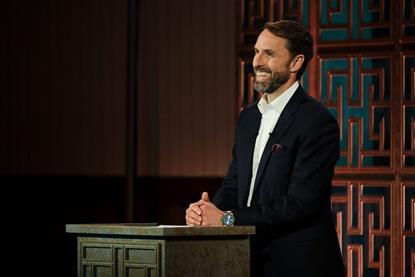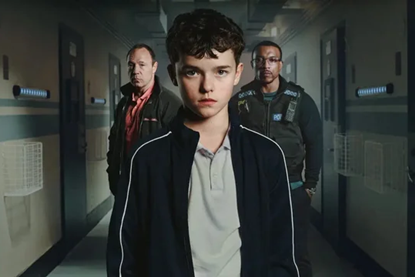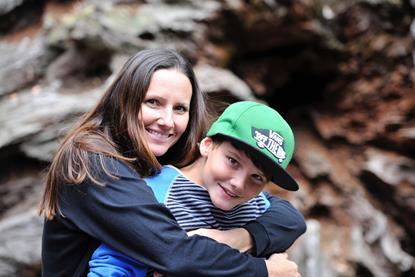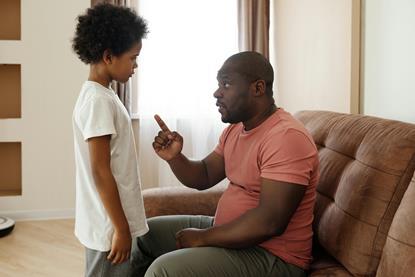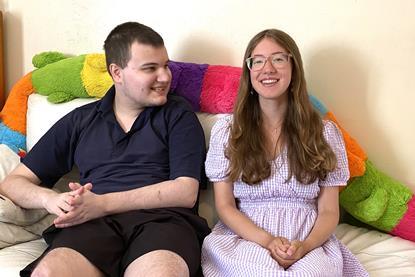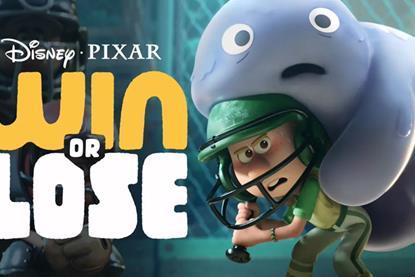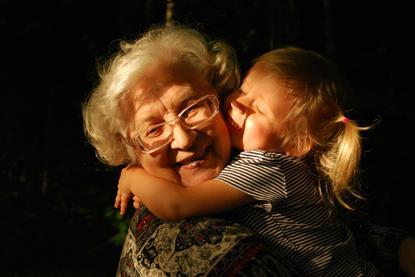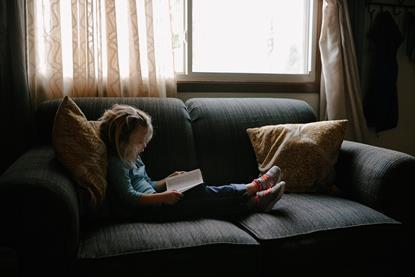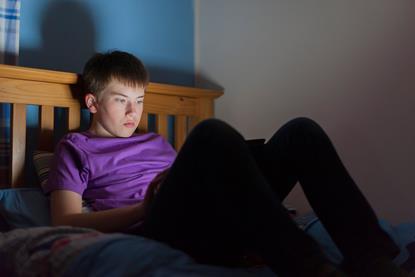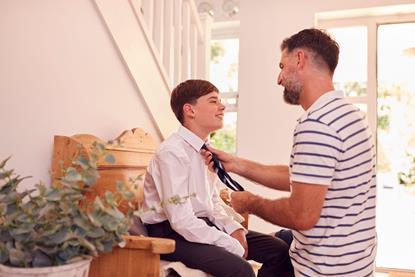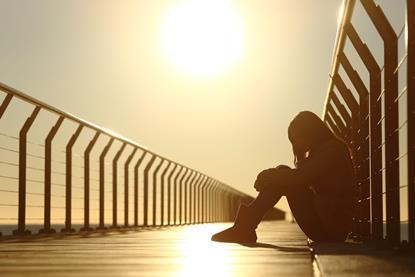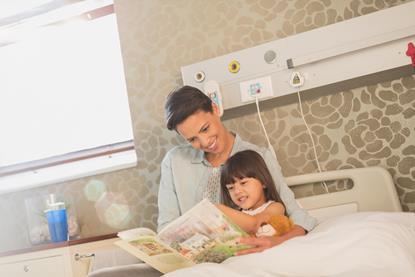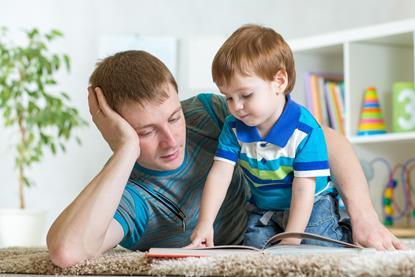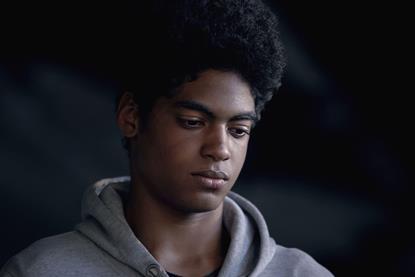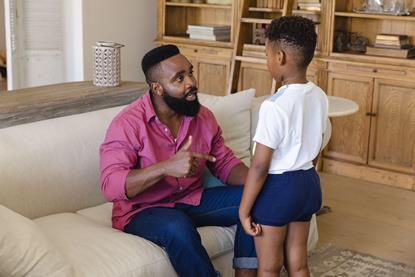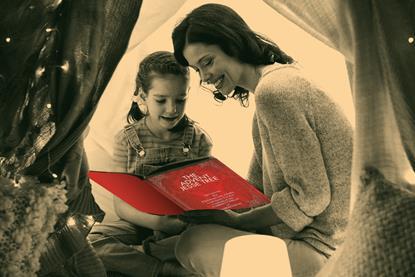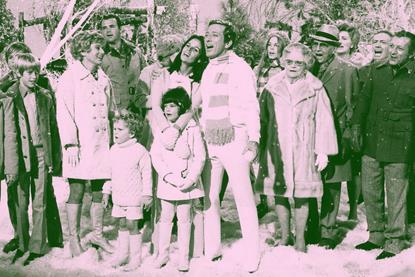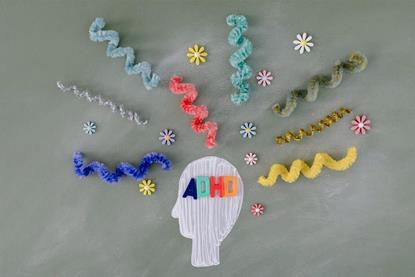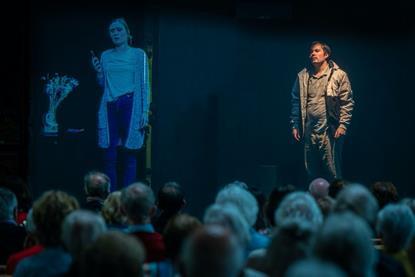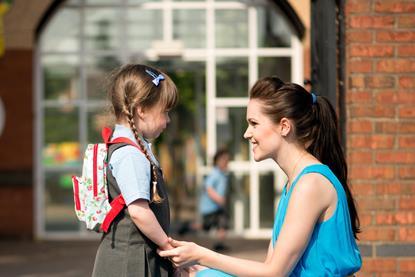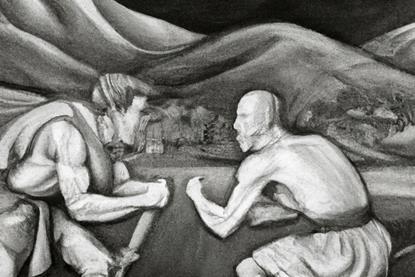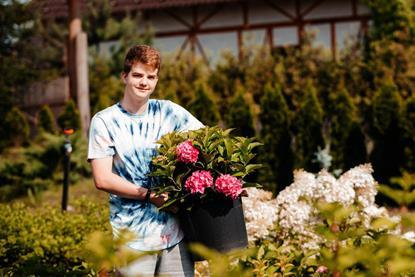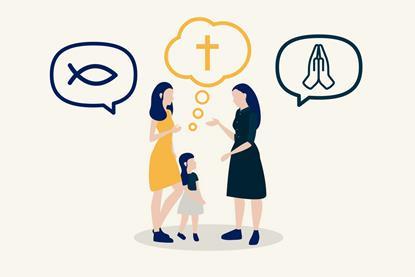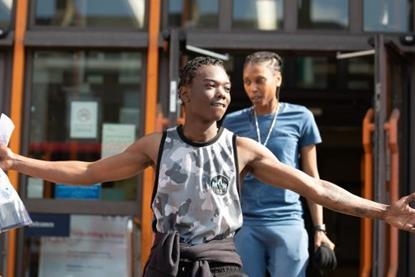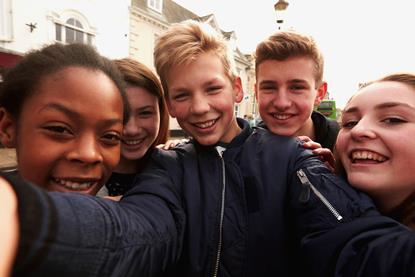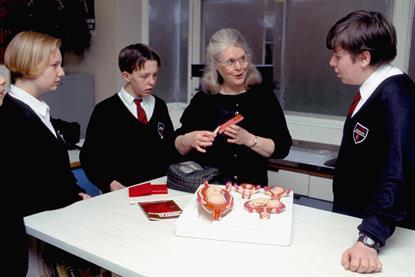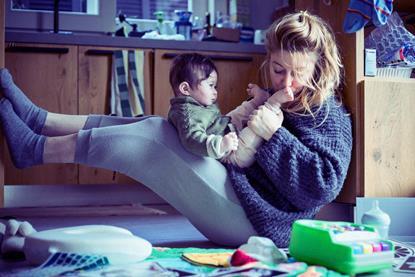Issues
Scottish parliament hands children the power to choose religious education
New legislation in Scotland lets children overrule their parents’ wishes and opt back into religious education. Ruth Evans considers how this raises big questions about consent, family rights, and the future of faith in UK schools
Why I’m worried that SEND changes will push more children through the cracks
Major changes to England’s special needs system could mean fewer legal protections and more pressure on families, teachers, and vulnerable children - but there’s still time to speak up says Kay Morgan-Gurr
Why this Christian son thinks social media bans for under 16s will fail
As the UK considers whether or not to follow the lead of the Australian government and ban social media for under 16s, two Australians share their thoughts. Graham Stanton is a leading youth ministry researcher and trainer and is hopeful the new laws will be effective - however, in this article, Jono Stanton, a 21-year-old musician, and Graham’s son, explains why he is not convinced
Why this Christian dad welcomes the social media ban for under 16s
As the UK considers whether or not to follow the lead of the Australian government and ban social media for under 16s, two Australians share their thoughts. Jono Stanton is a 21-year-old musician and is not convinced that government bans can work well - however, in this article Graham Stanton, a leading youth ministry researcher and trainer, and Jono’s dad, explains why he is hopeful the new laws will be effective
How a simple step of faith sparked a prayer community at school
What started as a small gathering grew into a network of encouragement, parenting wisdom, and faith in action - showing Christian parents everywhere how simple prayer can change everything
Christian parents need to engage with Roblox not simply fear it
Roblox is one of the most popular computer games on the planet. It comes with risks and opportunities to be aware of - Ben Jones from Missional Generation helps Christian parents get to grips with this phenomenon and see the possibilities for faith formation
Dreaming of escape won’t solve the tech battle for Christian parents
Juggling smartphones, social media rules, and the dream of escape, Andrea Zanin explores why finding balance—not blanket bans—is the messy reality for families raising kids in a tech-obsessed world
Why I won’t be signing a smartphone free childhood pledge
Robin Barfield highlights the hidden costs of blanket bans, the importance of digital literacy, and why real safety comes from equipping children, not just restricting them
5 tips for Christian parents to manage kids’ screen time
If a social media ban comes in to the UK it won’t be the end of the conversation - the amount of time youth and children spend on screens will still be something that parents have to think carefully about - Joanne Gilchrist is on hand to help
4 ways to prepare your teenager for a social media ban
Support for a social media ban for under 16s in the UK is growing quickly - Sandeep Louise suggests Christian parents get ready for it now
When divorce hits home, children need people not chatbots
As new AI platforms like Split Happens emerge, Kate Orson warns that only real relationships and Christ-centred care can address the deep wounds of family breakdown
Engaging your child in their Nativity play - even if they’re first lobster!
School nativity plays can include all sorts of characters that were not at Jesus’ birth but, says Ruth Evans, we should still engage positively with the versions our children find themselves in
Why home education is not necessarily the best option for Christian families
Nick Batt is convinced by the benefits of school education and encourages more parents to engage constructively with schools
Why home education is the best option for Christian families
James Cary is convinced by the benefits of homeschooling and encourages more parents to consider it
5 ways Christian parents can build healthy relationships with their child’s school
Matt Wan from Cross Connecting believes placing prayer, wisdom and grace at the centre is the key to Christian parents engaging with schools
How Christian parents can help their families navigate political turmoil
Andy Flannagan offers hope to Christian parents who are concerned about the impact of the culture wars on their children and young people
Serving Christ through serving your local school - The benefits of Christian parents becoming school governors
School governors are vital for the healthy running of a school - Ruth Evans encourages Christian parents to consider offering their time and skills in this most important of roles
3 ways Christian parents can take the lead on healthy smartphone use in their family
To combat the negative impact of smartphone use Sandeep Louise encourages parents to set the example for their youth and children to follow
Wizz, the latest app for young people presents some issues that Christian parents will want to know about
Youth Culture Specialist from Urban Saints, Nesu Kwaramba, helps Christian parents consider the issues with the latest app taking youth culture by storm
AI will change the job market for our children but Christian parents needn’t fear
AI is set to revolutionise the job market - Kate Orsen reflects on how Christian parents can think through the challenges this poses for their youth and children
What should Christian parents think about phone use in schools - Is a ban the answer?
As a new school year begins Claire Hailwood considers the place of rules around phone use in schools
7 ways to help your teen start university with Jesus at the centre
Starting university is a big step - Sarah Williams has suggestions for Christian parents wondering how to help their young people who are heading off this autumn
6 things Christian parents can do as the very first day of school arrives
The very first day at school is often harder for parents than children. Claire Hailwood helps settle parental nerves
6 questions for Christian parents to ask their children as they approach the new school term
Dawn Kay suggests all families take time to review the last 12 months in preparation for the new academic year
5 things for Christian parents to do as GCSE results day approaches
Results day can be tough for child and parents alike, Claire Hailwood suggests some ways to prepare for the day
Your child and their school: 4 ways Christian parents can raise faithful children in a secular school
As the new school year approaches it’s a great opportunity to reflect on how to help youth and children engage constructively at school - Matt Wan explains how
What Christian parents should know about the new sex and relationships education guidance
James Mildred explains the main pros and cons of the new government legislation on sex and relationships education
3 things Christian parents can do to help with the pressure of results day
Results day can be a nerve wracking experience, Nate Jones helps Christian parents think about how they can best react before, during and after the event
3 tips for Christian parents for A Level results day
A Level results day is not far away - Claire Hailwood looks at some things to consider as the day approaches
Two ways Christian parents can help prepare their children for a big school move this September
Ashley Nichols suggests parents help their children to lean on God and connect with other Christians as they approach the new academic year
The summer holidays can be great times to bond with your children and develop their faith. Here’s how…
Things to try this summer - Keeping your children busy in the summer holidays
How the job description for Christian parents changes when their young adult goes off to university
Revision is finished. Exams are over. Prayers have been prayed and now it’s a waiting game. The next few weeks stretch out in front of you. And you can almost forget that the 14th of August is inching closer with each day that passes. The summer after A levels always feels like it should be calm, peaceful, a time for patient waiting. In reality, if you’re sending a young adult off to university in September, your focus is probably already on exam results and where they’ll be going. After that, your mind will jump to what accommodation they’ll be in, and after that, what equipment and supplies they’ll need to take with them so they can survive on something other than pasta bake 3 times a day. And, before you know it, September will be here and you’ll be in a car piled with stuff, driving down the motorway and trying to ignore the chorus of Slipping Through my Fingers playing on repeat in your head.
3 things Christian parents can do when engaging with RE in schools
When you hear the words ‘RE lesson’ what springs to mind? It may trigger memories of copying notes from a board or a book about things we didn’t really understand. It may be remembering particularly quirky teachers, or maybe you don’t remember RE lessons even happening!
As a Christian parent I don’t put my children on social media - this is why
I once listened to a children’s sermon about the power of our words and the harm they can cause. To illustrate his message, the pastor used a tube of toothpaste. He squeezed all of it out onto a tray, then asked one of the children to put the toothpaste back into the tube. Naturally, they couldn’t do it—once the toothpaste is out, it can’t be put back. His point being that the same is true of our words, once spoken they can’t be taken back. In today’s digital age, it seems the same holds true for what we share online—once something is posted, it’s nearly impossible to take it back. While some platforms like Snapchat automatically delete messages after a certain time (unless saved), one has to wonder: are these records ever truly gone?
Christian parents should not let their children watch the new Harry Potter series
As an ex ‘new-ager’I want to share some concerns about parents letting their children watch TV series and films like the new Harry Potter series on HBO.
Homeschooling has its benefits for Christian families but it’s not for everyone
Over the last few decades school life has changed along with wider culture. Whilst education used to be far more aligned with Christian teaching there is now more distance between the two. This has prompted some to home educate their children.
Answering your child’s questions: What’s the point of praying? Because God doesn’t change
We know that prayer matters, but if your home is anything like mine then the fast pace of busy family life often means it doesn’t get the time or the focus that you wish it did. With conflicting clubs and extracurricular activities routines are all over the place and bedtimes are not as consistent as they once were. Mealtimes are chaotic and often filled with others around the table too, and those special moments when you’re all together as a family are too few and far between.
5 ways Christian parents can engage with sex and relationships education in school
No parent relishes the prospect of ’The talk’ with their kids. And when it comes to the birds and the bees, Christians are no exception; talking about sex and relationships can be embarrassing for both parents and children. Uncertainty, or fear of “getting it wrong” often lead mums and dads to stay silent- even in Christian homes. My husband and I recently bit the bullet and broached the topic with our eldest son; it’s safe to say there were a few awkward giggles and some very red faces!
Getting the most out of school sports day - A guide for Christian parents
Amongst all the emails that come in from our son’s school, the one we open quickest is the one about sports day. Check the date, clear the diary, not to me missed!
3 helpful qualities for Christian dads to foster this Father’s Day and beyond
On June 15th this year, families across the nation will celebrate Father’s Day. Fatherhood is likely to bring up different emotions in families. For some – hopefully many – emotions will be positive, and the day will be a chance to give thanks for the dads within the home. For others, the day will bring up mixed emotions due to the absence of a father, or perhaps a dad’s death. Churches which engage with the Father’s Day celebration would be wise to remember these various experiences – while also encouraging dads (and male role models within the church) in their midst.
Playing is good for youth, children and their communities - here’s how Christian parents and churches can encourage it
Today the Raising the Nation Play Commission released it’s report Everything to Play For: A Plan to Ensure Every Child in England Can Play - it shows that spaces and opportuntities for play in the UK are being eroded and that perhaps unsurprisingly youth and children in the UK are some of the unhappiest in Europe. How can parents and churches play their part in addressing this? Well before we get to that let’s wind back and think what play actually is.
Answering your child’s questions: Why is God a Father?
With Father’s Day just around the corner you’ve probably begun to notice that the shelves have filled up with bright ties and blue socks declaring “BEST DAD EVER” and “DAD YOU’RE ROARSOME!” (who actually buys those?) Teachers are scrolling Pinterest for new ideas of cute crafts, and our kids are spending their days creating beautifully unique handprint cards - just like everybody else! Whilst this day is quite rightly a celebration of the men in our lives who care so wonderfully for their families, it is also a painful reminder of what has been lacking for so many others.
What’s your parenting style? Are you an elephant or a tiger parent?
King Solomon advised the sluggard to learn about hard work from watching an ant. What animal would he suggest a parent learn from? There are a number of choices and I wonder which species you might set as your role model. Perhaps you are like the tortoise – slow and patient with your children, compared to the hare who rushes them from task to task. Or perhaps you are like the eagle swooping over their heads, ready to plummet down to their level at any necessary moment. Or perhaps you are like the Mother Hen sheltering them under your wing, after all that’s a biblical picture (Luke 13:34).
5 ways to help children respond with kindness and faith when the world doesn’t make sense
Last week, we went to see the Liverpool parade. The sun was out, the atmosphere electric, and spirits were high. As a family, we navigated the usual big-crowd quirks: people pushing in, kids on shoulders blocking views, random traders weaving through the chaos selling knock-off scarves and super loud horns. It sparked some good conversations about patience (we were waiting for seven hours!), and about kindness, as we encouraged the children to make room for people who couldn’t see, invited the smallest to go to the front, and choose to be considerate even when it felt like no one else was.
Chloe Swart: You don’t have to be a superhero parent. Just love Jesus deeply and live that out in front of your kids
Chloe, can you describe what it was like growing up in a home where your parents were so actively involved in mission?
Lilo and Stitch – Finding life after death
Film: Lilo and Stitch
Marriage matters: The importance of Christian parents making space for each other
A few weeks ago, headlines and social media feeds were flooded with an image of the Prince and Princess of Wales embracing as they gazed out over the beautiful landscape of the Isle of Mull. The moment marked their 14th wedding anniversary, and they chose to return to the Scottish island they had first visited back in 2003 while dating as students at St. Andrews.
Helping your child start school with confidence and faith
The school places have been finalised, and the countdown has begun. Whether your child is starting school for the first time, entering a new year, or starting at a new school, new beginnings are a big deal — and change is always hard. So how do we prepare our children in mind, body, and soul?
Sport, faith, and friendship: Evangelism for the everyday parent
Every Sunday morning, thousands of parents gather on the sidelines of children’s sports fields across the country. Some stand quietly with their coffee; others make small talk while the game unfolds. Earlier in the week, many are already at swimming pools before sunrise, watching through glass panels or sitting in cafés while their children train. For those in more competitive or elite pathways, weekends are spent travelling to competitions – families packed into cars, clocking up hours together, waiting and watching.
“School is a waste of time!” What Christian parents can say in response
Over the last couple of decades, various socio-economic, political, and cultural developments have contributed to the advanced and complex world we now live in. One of the outcomes of this transformation is that the world of work has undergone a structural overhaul, emerging as a landscape that includes all kinds of new and novel professional choices and career paths. Against this backdrop, one of the colossal questions is: does school still hold the key position it once held in contemporary society? More importantly, what do we say to the significant proportion of young people who think that school is a waste of their time?
What’s your parenting style? Are you a helicopter or a satellite parent?
You have probably heard of helicopter parenting - the idea that parents hover over every move their children make, ready to swoop in and protect them from harm. This style has been made even more possible by smartphones: I can see where my children are at any moment. Is he going to get home in time for dinner? Why is she in the park when she should be at dance class? I just want to check that they both made it home from school.
Raising youth and children in the age of AI: A Christian parent’s guide
AI such as ChatGPT can be fascinating for children and young people. It can deliver a wealth of information in split seconds and can even be conversed with. But with ethical concerns about plagiarism, reports of AI addiction, and even the threat of AI becoming sentient, how should we talk to our children about AI?
Parenting without pretence: How vulnerability builds stronger families and communities
It’s a sunny Tuesday morning in London and everyone in my family is getting ready for their respective days – a dad, a mum, and five kids. What could possibly go wrong? As it turns out… socks. Socks can go very wrong.
Trussell reports food poverty is increasing: Christian parents and churches can provide hope in these difficult times
You don’t have to look very hard to see that the majority of people in the UK are feeling the pinch of the cost-of-living crisis. Our money has to stretch further. Our jobs have become more unstable. The price of food has risen. We know that some people have to make a choice between heating and eating. But how bad is it really? What can we do as Christians to help alleviate some of the pressures from the families we might know. And how, as a Christian, can I survive in the middle of it all, living in a house with one income, three children and a high rent bill each month?
4 ways to celebrate your child's birthday, honour God and not break the bank
The celebration of a birthday brings excitement, anticipation, and lots of fun. Celebrating a child’s birthday increases their self-esteem, sense of belonging, and overall well-being. But are parties now becoming too expensive to host given the current climate? A recent article in The Times suggests they are, with many parents delaying parties—leading to a dip in the party industry in the UK.
Olly Goldenberg: 'I am so grateful to be able to pass on the spiritual legacy of my parents to my children'
I was born into a non-Christian home. My Dad was a nominal Jew, raised orthodox in Sudan he moved to the UK and had long since left the synagogue behind. My Mum, a gentile, would have called herself a Christian, but this was more a matter of culture than heart submission to the Lord. More a wedding and funeral follower than a devoted disciple of Christ. That all changed when I was 4 years. Both my parents became Christians around the same time attending church became a regular part of our lives.
Answering your child's questions: What’s the point of praying? Because God is all powerful
Praying with our children is one of the most meaningful and powerful parts of parenting. In fact, teaching them how to pray is quite possibly the most significant thing we could ever teach them! But it is often one of the hardest habits to help them form.
Reframing our failures: Good enough parenting is good enough
I grew up in an era where pass and fail were clearly defined. Teachers would liberally use red pen to denote wrong answers (especially in my maths book), and there was no sign of EBI (“even better if”) or just a coloured dot alongside answers that weren’t right.
5 ways Christian parents can teach their youth and children about generosity
Nurturing a spirit of generosity in children and young people is integral to encouraging their faith. The more they understand God’s lavish generosity towards them, the more likely they are to want to be generous themselves. A generous spirit will, in turn, deepen their faith as they witness the positive impact of their generosity on the world around them. Parents clearly have a pivotal role to play in shaping their children’s attitudes towards giving—but how exactly can they do this?
Safeguarding and intergenerational relationships: Helping Christian parents explore the tension
You are running your first-ever Messy Church session. After months of planning, training the team, advertising the date, and talking to everyone you know about coming along to the launch, people start to arrive, and your church hall is now looking full. You are busy welcoming people and ensuring that your team has everything they need when you notice that your welcome desk team member is waving you over. You weave your way across the room to check that they are okay.
This Mental Health Awareness week, Christian parents can turn to the Bible for help with the well-being of their children
As Christian parents, we’re probably used to wanting to find out what the Bible has to say about the issues facing us and our families. We want to use scripture to help us navigate the world, and whilst sometimes we can easily see what the Bible has to say on a topic (there is an abundance of wisdom on navigating conflict well, for example), at other times it can be a little trickier.
Thunderbolts* – Redemption in the face of darkness
It’s been a bumpy road since Endgame but this is a fantastic addition to the Marvel universe because it’s actually able to stand on its own as a good film.
Pop the Balloon LIVE: Helping Christian teens navigate identity in a swipe-and-judge culture
If you’ve not yet come across it, Pop the Balloon is a new dating series on Netflix that’s grown in popularity after being streamed on TikTok. A contestant walks along a line of potential matches and decides whose balloon to ‘pop’, effectively rejecting them based on first impressions alone. It’s a high-pressure test of appearance, confidence, and social power. Who’s attractive? Who’s awkward? Who gets left standing? No conversations. No background. Just a snap judgment, broadcast for millions to see.
When Sephora meets Scripture: Helping our girls see true beauty
It was November 2024, that time of year when I ask my children for their Christmas lists to avoid any disappointment on 25th December. But this year felt somewhat different with my three daughters. As I scanned their lists, I found myself searching in vain for the familiar comforts of LOL Dolls, Barbie Dreamhouses, and Lego Friends sets. Instead, I was met with a line-up of brand names completely foreign to me — Laneige, Bubble, Rhode, Sol de Janeiro, Drunk Elephant, Fenty, Mario Badescu (had Ken been replaced by a Romanian counterpart?). Then it struck me, with a twinge of sadness, that my daughters had quietly moved beyond the innocent world of toys, trading them for the sophisticated realm of skincare and beauty products. Even my nine-year-old, surprisingly well-versed in the world of luxury brands, appeared caught up in this early wave of consumer savvy. It left me wondering: were they growing up too fast, or was I simply unprepared for how childhood itself has evolved?
When parenting advice doesn’t work: Understanding PDA in autistic children
“Have you tried praying more for your child?”
Taming gaming: A faith-based approach to video games at home
Games are a helpful way to entertain children between the more important parts of family life, school or church life, but we need to be careful they don’t take over. Such advice was ringing in my ears when I started writing my book, Taming Gaming. I wanted to get to the bottom of what advice parents, carers and youth workers really needed about video games.
What does God look like?
Once upon a time, I was helping my 5-year-old brush her teeth, and she asked, “Does God have teeth?”
How to raise children who know they are loved by God - and you - even when they don’t “perform”
In part one, we explored the beautiful truth that God made sport as a gift, a joy, and a way to reflect His creativity. But let’s be honest: that can feel idealistic. We don’t live in a perfect world. Sport, like life, involves disappointment—injustices, injuries, losses, and rejection. So how do we help our children thrive in that reality?
What’s your parenting style? Are you a dry-clean parent?
One of the features of modern life is that we have learned to outsource. I can no longer fix my car, my computer, or my dishwasher—and I know I cannot ‘fix’ my children! These things are tremendously complex, and I am more likely to do harm than good if I tinker. The solution for the first three is to take them to an expert who understands them and can do something about it. I can rest assured that the mechanic at the garage can sort out my brakes, my suspension, and my tyres, and get me safely back on the road. I even have an expert in dishwashers called Geoff, who I occasionally call around. He sucks through his teeth, then gets on with the job and charges me next to nothing.
A woman’s place? Rethinking work, home, and biblical calling
I remember the first pay packet I received; it was actual cash in a small brown envelope and was the result of my eight hours in a local coffee shop. I loved that job—the freedom it gave me, the finance it provided, and (retrospectively) the experience it gave me of the working world.
Beyond the endless scroll: Protecting your teen’s heart on TikTok
TikTok, known for its viral trends and challenges, has quickly become one of the most popular social‑media apps among young people. British teens spend an average of two hours a day on TikTok. With its creative, fast‑paced content and personalised algorithm, it’s no surprise that teens devote so much time to the app. However, such a time commitment inevitably shapes how they think, grow, and interact with the world.
Why God invented the game: Five faith‑filled reasons sport matters to your family
If you’re reading this, I guess you are parenting a child who loves sport—possibly to the point of obsession. Maybe you love it too. Whether your weekends are spent on muddy sidelines or at early‑morning training sessions, you’re probably asking deeper questions about how all this sporting enthusiasm connects with your Christian faith.
Fiction as a faith‑builder: How Christian parents can use stories in discipleship
Long ago, before my husband and I had children, we were staying with a family who had teenagers. Together we watched a TV series featuring an alcoholic. I was surprised that the parents allowed their young people to watch it, but the ensuing discussion proved invaluable.
A Christian parent’s guide to mandatory reporting: What’s going on and why it matters
Trigger Warning: This article contains information about child sexual abuse
What’s your parenting style? Are you a lawnmower?
If you could describe your parenting as a picture, what would it be? A helicopter always circling around; a bulldozer flattening everything in your path; a gardener, carefully nurturing tender stems?
There is no good parenting without Good Friday
We spend a lot of time on NexGen providing helpful, biblical, practical articles for Christian parents on all manner of subjects: films, social media, additional needs, disability, schools, awkward questions, reviews of Christian resources and much more. But the most important element in Christian parenting is you. That sounds obvious, after all the clue is in the word! But sometimes we might forget the centrality of that truth. Your parenting starts with you. Not the skills, not the tips, not the information – you.
The online world: Friend or foe for Christian youth and children?
We are all increasingly aware of the role that online spaces play in our daily lives – from shopping to entertainment, work to recreation, and even chatting with the postie through the doorbell. Life is now lived in a hybrid reality that is here to stay.
When church attendance isn’t simple: Parenting, faith, and the beauty of flexibility
When our children were young, attending church on Sundays and midweek was a regular, prioritised part of our weekly rhythm. If you’d asked me back then, with toddlers in tow, what parenting teenagers would look like, I’d have confidently told you church attendance would be mandatory.
It takes a village: Rediscovering biblical parenting through community
Think of how often the wider faith community shaped the lives of biblical characters. When Jesus was 12, his mum and dad found him in the temple, sitting among the teachers, listening and asking questions – absorbing the wisdom in the room. He gravitated towards those who could teach him and guide him. Moses was raised by his biological mother, Pharoah’s daughter and the Egyptian royal court. His mum saved him from certain death, but it took the care, protection and the influence of different people from diverse cultures to shape him into the leader he became. Timothy’s faith was nurtured by multiple generations of women before Paul stepped in as a spiritual mentor. And Samuel – his mum, Hannah, entrusted her son to the care of the temple community. Orphaned Esther was taken in by her cousin Mordecai, who raised her as his own daughter and played a crucial role in God’s plan to save the Jewish people from annihilation.
Finding peace after loss: Trusting God while supporting your child’s grief
Grief is one of the most challenging experiences that we endure in life. Whether it arrives suddenly or evolves over time, nothing fully prepares you for the plethora of emotions that it brings. When my father passed away last year, the grief was overwhelming. Though I continue to hold on to my faith, there are days when the weight of his absence feels unbearable, and the notion of ‘healing’ seems distant.
A creative world with no imagination – A Minecraft Movie fails to craft a story
Film: A Minecraft Movie
Answering your child’s questions: Is God dead?
“This parrot is no more! It has ceased to be! It’s expired and gone to meet its maker! This is a late parrot! It’s a stiff! Bereft of life, it rests in peace!”
Make your home the safest space for the biggest conversations with your youth and children
I don’t know if you knew this already, but you parents are scary to many younger youth workers.
Grace Keir: The 'young preacher of the year' on the prize that changed her life
In Spring 2023 16-year-old Grace Keir gave a talk on the subject ‘Why there is hope’. So far so unremarkable, plenty of 16-year-olds talk on similar subjects up and down the UK every week. But this talk was recorded and sent off to the Premier Unbelievable Youth Preaching Prize (with Spring Harvest) and Grace won.
Sweet dreams - Sleep is foundational for the mental and spiritual health of youth and children
I can remember as a child and teenager trying various tactics to push back my bedtime. It was like going to sleep was a bad thing and creating a battle or managing to get to bed later was somehow a worthwhile victory. As an adult I now enjoy getting a good night’s sleep – but occasionally there is a battle with myself to get off the sofa and make it happen.
Snow White – A kingdom of love, not fear
Film: Snow White
Having a Disability Champion can revolutionise life for disabled youth and children in your church
When we moved to our current church a few years ago, most people who talked with me for more than a few minutes soon discovered that I’m passionate about churches becoming more accessible for disabled people, including disabled young people and children. It wasn’t too long before our vicar approached me and asked if I would consider being the Disability Champion for our church. After praying about it, I gladly accepted. I want churches to not only welcome and include disabled adults, youth and children, but to also be places where they can feel that they truly belong. But what is a Disability Champion and why might your church need one?
As Gareth Southgate considers a generation of lost boys here are some reflections for Christian parents
In recent weeks, the success of the Netflix drama Adolescence, with its visceral depiction of a teenage boy’s crime and its effects on his family, has led to widespread conversation on boys and masculinity. Sara Taylor has already helpfully explored ways in which this might inform parents in their relationship with kids.
The new Netflix series Adolescence raises difficult but essential issues for Christian parents to grapple with
Few television shows capture the emotional chaos of growing up as honestly as Netflix’s latest series, Adolescence. Diving deep into the complex struggles faced by young people today, this is more than just a typical coming-of-age drama. With its innovative use of single-take episodes, its raw and poignant cinematography immerses you into a world of identity crises, societal pressure, online dangers, and the hidden pain of those caught in the fallout of serious mistakes.
Mothering Sunday: A chance to celebrate mothers and consider the implications of mothering for mission
One of the things that I love most about being a Mum is receiving hand delivered tokens of love. I have kept notes from my now-teenagers, one of whom, at six, declared they loved me nearly as much as their favorite toy. I have photos of a special stick found ‘just for me’ by a sweet little redheaded boy who is now as tall as I am.
Should Christian parents be prepared to smack their children? The case against corporal punishment
The Research is unequivocal; smacking children is harmful. Studies have shown that the negative effects of smacking include problems with social-emotional development, self-regulation, and cognitive development. Smacking also alters children’s brain response in ways similar to severe maltreatment and it increases the perception of threats.
Should Christian parents be prepared to smack their children? The case in favour of corporal punishment
It’s not an easy thing to talk about corporal punishment. Many British parents are wary even of broaching the subject with one another, let alone normalising it. For many people, the potential for justifying abuse is too high. Anyone defending a genuinely Christian view of corporal punishment should never justify abuse. But in our zeal to combat abusive forms of corporal punishment, we also risk eradicating this biblical practice altogether, forgetting that, when practised in love, it is intended for good not evil.
Siblings of youth and children with additional needs need support too - Here’s five things Christian parents can do
This article is written by Phoebe Ridout, who is the daughter of Mark Arnold (from the Additional Needs Alliance). Phoebe shares her experience of growing up as an additional needs sibling to her brother, James, as well as offering learnings for us all…
Helping your teen navigate Snapchat: A Christian parent’s guide to helping them flourish online
In today’s digital world, social media is a big part of many teens’ lives. Snapchat, with its disappearing messages, fun filters, and real-time updates, is particularly popular among young people. While these features can offer entertainment and connection, they also bring risks that parents need to be aware of. As Christian parents, it can be challenging to help our teens navigate platforms like Snapchat while keeping them safe, grounded in faith, and aware of the potential dangers. This guide will help you find that balance.
It’s not all in the head - Physical activity is really important for the mental and spiritual health of youth and children
In 2024 there were 9.3 million NHS Couch to 5K runs started in the year as people sought to get healthy. I really enjoy physical activity but there are times (especially at the end of a busy day or if it is cold and dark) that dragging myself away from a comfy sofa is quite a challenge. However, one thing I do know is that being active is good for me and I always feel better having chosen to abandon the sofa for exercise.
New Disney+ series for children Win or Lose has an openly Christian character in it, but that doesn’t mean it’s a complete cause for celebration
I’ve always loved Disney. I love the music, the predictability and the comfort of the familiar hero storyline. I marvel at the ability for its message to speak to 5-year-old me whilst still speaking to 45-year-old me, that’s meant that Disney has become a timeless classic in my life. There have however been some recent controversies, for example around Disney’s latest move to introduce characters who are gay (Strange World (2022) and Buzz Lightyear (2022)). This led some Christians to unsubscribe from Disney+. As a family we chose to keep our subscription. My children are now 21, 19 and 17, so Christian discussions around the cultural topics that Disney are highlighting are much easier. However, for many others, the way in which Disney portrayed gay characters accompanied by price hikes saw them choosing to cancel their subscriptions.
Christian grandparents: An underused resource in the faith lives of youth and children?
It’s over 20 years now since my Grandad moved on to heaven, but I am still inspired by his prayers and the role model of faith he was to me. His well-worn Bible was always open next to his favourite armchair, and he told me on so many occasions that whilst he couldn’t physically do much in his later years, so he would sit talking to Jesus for large portions of the day, particularly praying for me and my family. I will never forget him. His faith inspires me still now and will do for the rest of my life.
Nicotine pouches might not be as bad as smoking, but Christian parents need to know about this new fad on the street
Max (a 16-year-old boy) and Ollie (a youth worker in his mid-twenties) are at a youth club for young people aged 11-18. The discussion starts like this…
Christian devotions at home for children with additional needs are hard but worth working at
Hands up if you feel pressured by your church to do family devotions every morning. In some areas of our wonderful church, we can be left feeling that having daily family devotions is compulsory and doing it in the morning brings extra holiness points.
We might be facing a pornography pandemic but Christian parents do have weapons to fight back with
The statistics are bleak. A 2023 report from the UK Children’s Commissioner found that by the age of 13 half of all children have viewed pornography. The porn that is freely available on the internet isn’t like the magazines of the past. Videos are often harsh, involving scenes of sexual coercion and aggression.
Now parents know which school their year 6 children are going to it’s time to start getting ready
Our youth and children make several big steps in their life but as parents and carers we make those steps with them and can be as concerned and nervous as they are. One of the biggest steps our children make is starting at secondary school and that certainly is a significant change for us parents!
Captain America: Brave New World – Can people change (beyond turning into a Hulk…)?
It’s been a while since we’ve had a smaller scale story in the Marvel Cinematic Universe – MCU – based on earth and it was a nice change of pace to have a story with more personal stakes than an alien invasion.
Our children and young people need the good news not mere happy news
Rachael Newham considers whether we are passing on an emotional prosperity gospel and what a healthier approach might be.
Knife Crime: What parents need to know and what they can do
Knife crime is a devastating issue affecting communities across the UK. It’s a crisis ripping through communities, leaving families shattered and futures stolen. Across the UK, and especially in cities like London, young people are being pulled into violence, not because they want to hurt others, but because fear leaves them feeling like they have no choice. The numbers don’t lie. Knife crime is rising, lives are being lost, and entire communities are being scarred.
Parents are the key to bridging the gap between church and school
Ashley Nichols sees parents as playing a pivotal role in helping schools provide appropriate space and time for children and young people to consider the Christian faith.
Christian parenting in hospital: surviving through everyday faith
I’m sitting just to her side, wedged between the ward wall and my child’s hospital bed. For me and many other parents this has become a familiar yet daunting place. The rhythmic soundscape of oxygen masks and intermittent beeping from machines becomes our lullaby. It merges into the background of chatter and children’s cries, as we try to rest and get some sleep.
Hand in Hand Conference 2025: A call to action for children’s and family ministry
As the skies drizzled on a chilly Friday afternoon in February, the excitement surrounding the 2025 National Children’s and Family Ministry Conference, Hand in Hand, was anything but damp. Over 600 attendees arrived at the Bethel Convention Centre in Birmingham, where the warm, vibrant welcome was evident from the moment they stepped onto the red carpet. This year, the event found a new home, bringing with it a fresh energy and a renewed sense of purpose in children and families ministry.
Are smartphones rewiring my kid’s brain?
Robin Barfield wonders if Christian parents are sometimes a little too negative on the impact of smart phones and social media. For an alternative perspective click here.
Use the Gospel to transform your approach to your child’s behaviour
How do you approach your child’s behaviour? Do you find yourself giving commands or trying to persuade? Are you an authoritarian or gentle parent? As a Christian parent, you feel like you want to be able to give your child clear, simple instructions for how they are to behave and why. You also want to speak to their heart, not just their behaviour.
Childline’s tips on tackling loneliness are helpful. But Christians should go further.
This month Childline revealed that that they ran nearly 5,000 online or telephone counselling sessions with youth and children in 2023-24. There are lots of issues that worry youth and children but, in those sessions, the main concern was loneliness. This isn’t an outlying report. The Office for National Statistics said something similar about the same time period. Loneliness, it seems, is a big problem.
Discipline – Getting it right, biblically, legally and practically
When you think about discipline, what comes to mind? Perhaps it brings back memories of how you were treated as a child. Those memories could be positive or negative. As parents, we know discipline is key in helping children become well-balanced and responsible people, but the way you approach discipline can have a lasting impact on your child’s emotional and behavioural development.
A Parent’s Guide to Safe and Enjoyable Sleepovers
Sleepovers are a cherished part of childhood—an opportunity for children to bond with friends, and enjoy the freedom of staying up far too late! For parents, sleepovers are a big moment, as the fun also comes with the responsibility of ensuring everyone is safe and looked after. With stories of peer-on-peer abuse in the media, it’s natural for parents to have concerns. So let’s look at how you can make for an enjoyable and safe sleepover.
A parent’s guide to safeguarding
Most parents want to protect their children, ensuring they thrive in safe environments. For many families, this extends beyond their homes and into the various clubs and church communities where their children participate. Whilst these places may offer growth, friendship, or spiritual development, parents need to be aware that safeguarding ...
Supporting a child who has been abused
Are you clear about what you would do?
Famous online? Helping your child navigate the allure of social media
Which social media do you find most attractive?
Imaginative ways of celebrating Jesus’ birth, without fearing the credit card bill in January
What do you spend on Christmas?
Why we should talk to our children about the New Age
How aware are you of New Age?
The enduring appeal of Dr Marten boots and walking with Jesus…
Have you ever owned a pair?
Setting yourself up for faith conversations in 2024
Do conversations with your kids come easily?
‘God with us’ in a family with additional needs
What is the toughest part of Christmas for you?
Your Christmas chocolate is probably tainted. Here’s a Christian response
Have you looked into the background of your favourite chocolate bar?
Is it OK to talk about Santa and does this undermine our words about Jesus?
What was your experience of Santa growing up?
Give glory to God this Christmas (and ditch ’the elf on the shelf’, please!)
Have you had to make adjustments to your Christmas routine?
Maybe Christmas doesn’t come from a store: how to be imaginative as you celebrate God's gift to us
Do you know your love language?
What does the new Online Safety Bill mean for our kids?
Premier NexGen spoke with Kevin Doran, Premier’s director of Public Affairs about how this legislation has come about
‘I find it easier to share Jesus with my children at Christmas: here’s how I do it’
Do you find Christmas is a good time to share faith?
How to share Christmas gifts (without going into debt!)
How many gifts do you typically buy?
‘Mum can I get a tattoo?’ What to say about tattoos and piercings in the light of the Bible
Have tattos been an issue in your home?
A how, a wow and a bow: a Christmas meditation for your family this advent
Have you lost the sense of wonder of Christmas?
‘Teamwork makes the dream work’: how one Christian family is tackling selfishness
Is selfishness the root of issues in your family?
Hitting children is harmful and God does not give harmful parenting advice
What kind of discipline methods do you use?
‘Does our style of church services put young people off?’: Dan Blythe on the challenge of reaching Generation Z
Did you enjoy listening to talks growing up?
‘I hate you’ could be the start of a fruitful conversation. How to make a Christian response
Have you had to field unwanted personal attacks?
Emma Watson, Jim Carrey and Michael Phelps have it, but what should you be praying if your child has ADHD?
When did you first become aware of ADHD?
Yikes, I need 70 hours a week to fit it all in!
What is the maximum you have ever worked in a week?
Juggling childcare and a day job - how can Christian parents flourish?
Do you prefer working from home?
7 ways to prepare for relational change in your family
Was ‘leaving for uni’ your biggest transition?
‘When you dress up for Halloween, you give the devil the legal rights to change your identity!’
How was Halloween celebrated in your childhood?
How do you talk to your teen about their appearance?
Was your appearance a concern for you growing up?
What you need to know about vaping as a Christian parent
Do you know a young person who vapes?
Why being ‘trauma informed’ is following in the way of Jesus
Sally Hope believes that of all people, Christians should be engaged with those in society who have had a lousy start
The mistakes I have made as a Christian parent, have made me a better parent
Your worst mistake as a parent?
Spotlight on… The Boys’ Brigade
An insight into a Christian charity or ministry that you may like to know about.
7 reminders for youthworkers following the Mike Pilavachi investigation
Have you ever been alarmed by someone’s behaviour in youthwork context?
Spotlight on… Artless Theatre Company
This is an occasional post where we give you an insight into a Christian charity or ministry that you may like to know about.
It’s time to ‘scrap the cap’ on faith-based schools admissions
Did you have the opportunity to attend a faith-based school?
7 ways you can support your child through chronic illness
Which of the seven is most important?
What Christians can learn from the Princess of Wales’ parenting rules
Where do you get your parental wisdom from?
When your parenting journey isn’t what you expect
How close has your parenting been to what you expected?
Off to uni and off God? Helping your child connect with Christians
What helped you settle into a new place?
How Christian parents can keep their children safe from dangerous lyrics
Did you have any limits placed on your music listening?
Studying maths as a Christian
Do you think there’s any connection between maths and faith?
Studying psychology as a Christian
Was psychology a subject offered at your school?
How Christian parents can teach their children about consent
Do you recall teaching about ‘consent’ from your youth?
Conversation is key to parenting, but how do you create the time and place?
Joel Toombs shares some mentoring approaches that will take time with your children to a new level
It’s his first day at High School. How am I going to cope?!
Were your transitions to a new school harder for you, or for your child?
What I would say to my younger parenting self about starting a new term
Which transitions do you recall most clearly?
3 ways to make ‘drop off and pick up’ precious times in the term ahead
How valuable were chats with your parents on the journey to school?
Studying English Language as a Christian
How did you find ‘English’ studies?
5 parenting tips from the Bible’s most dysfunctional families
Which Bible passage do you find most relevant to your family?
10 Bible verses every Christian parent should know
What verses would you select?
Studying economics as a Christian
Do you have a basic grasp of economics?
How to prepare Christian young people for part-time work
Do you recall your first Saturday job?
Why allowing children to eavesdrop is a good thing
Do you recall picking up ideas from adults by over hearing them chat?
Studying geography as a Christian
Which part of geography did you like best?
Year out, uni or work? How christian parents can navigate the crisis
How clear was your pathway?
How drug gangs involve teens in their work and how Christian parents can be alert
How prevalent are ‘county lines’ where you live?
7 ways to bring ‘God-like’ order to your home
How tidy is your home?
8 ways to teach your children to pray (and leave them skills that will last a lifetime)
Do you recall when you learned to pray?
How to actually compare your child with other Christian children
Did you get compared with anyone when you were growinng up
‘Age verification on porn sites will help your children stay safe, but loop holes need closing’
Do your children access porn and how would you know?
3 ways to help your children stick to the faith in a culture that teaches them to rebel
Did you go through a teenage rebellion?
The UN has called for a ban on faith based admissions to schools in England. What do you think?
What were the faith based school options for you?
Being a dad is an incredible privilege - here’s how to make the most of it
What’s the best part of being a parent?
Bluey may be popular but my child’s behaviour has gone downhill. As a Christian parent what should I do?
What TV programmes seem to affect your kids?
A third of girls miss school because they dont have access to period products. It’s time to be proactive
How aware are you of this issue?
The TikTok pranker and social media: beware of the race to the bottom
Have you ever followed someone you found to be ultimately unhelpful?
Over one in ten teens vape. The government needs to crack down and Christian parents need to be alert
Did you ‘try something’ out of curiosity?
As less than half believe Jesus died, this teens’ survey suggests the church has a real task to both educate and evangelise
Do you know a teen who questions the basics about Jesus?
Embarrassing your kids with your faith? Don’t lose heart, they will get over it!
What did you cringe at growing up?
Seeing the church service through a child’s eyes. How child-friendly are your songs?
Have you ever completely misheard a lyric?
Fans, feathers and balloons: it can only be illustrations for Pentecost Sunday!
How easy was it for you to grasp the Holy Spirit’s coming?
When your children slip away from faith
What would you do if your child decided not to follow Jesus?
The shocking survey of what 1000 sixth formers believe about sex and relationships. How Christian parents should respond
Do you recall the views about sex from your sixth form days?
How laughter is God’s gift for disciplining your children
Was laughter a key part of your upbrining?
Should Christian parents be concerned about their children being on Instagram?
Which social media platforms are you on?
How to help your child through the exam season
What’s your best tip for coping at exam time?
Top worship songs to teach your kids
Which is your favourite?
Eco-anxiety is a thing for children, but here’s how Christian parents can respond
When were you first aware of eco issues?
‘We’re not that strong and we can be deceived’: a Christian commentator cautions you to be careful what you allow your kids to watch
Have you ever stopped a film because of what it was portraying?
You wouldn’t let your children watch a violent film so how do you talk about Easter
Are you tempted to sanitise the death of Jesus for younger ears?
5 things every Christian parent needs to know about dyslexia
Who do you know with dyslexia?
Badly behaved, or sensory processing issues? How the church can support the one in 100 UK children who have autism
When did you first become aware of autism?
If you think your parenting is less than perfect, it’s OK. God is there to help
Who’s the best parent you know?
Teaching your children about God when your partner doesn’t believe
Do you know couples who have different views on faith?
'Nature is the first cathedral': 9 tips to help your children enjoy God’s creation
When did you last play outside with your children?
‘Christian parents need to take wise precautions when employing a private tutor’: a safeguarding expert outlines what to do
Have you ever used a private tuor?
Why I believe your child can lead today
Do you believe your child can lead?














